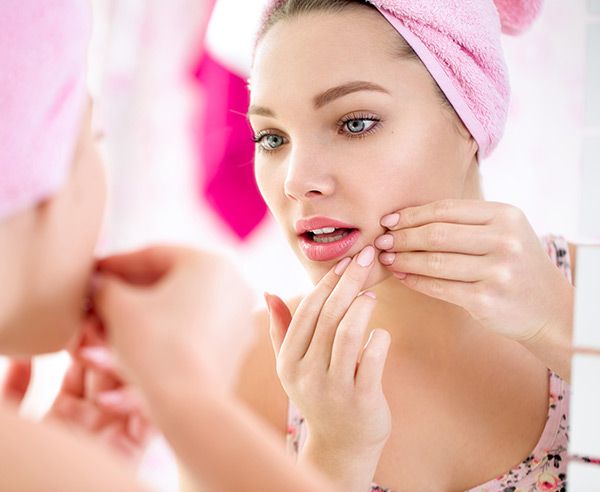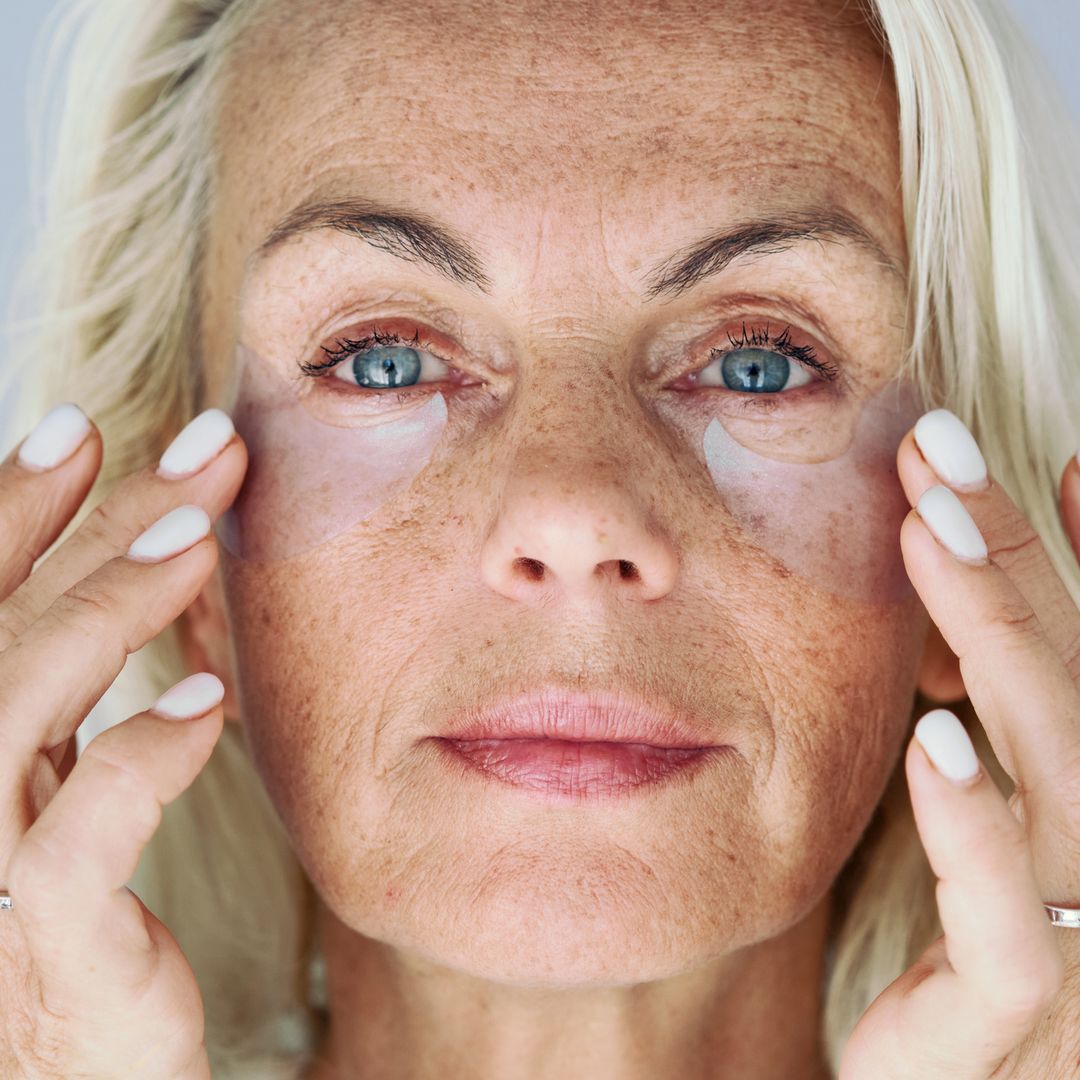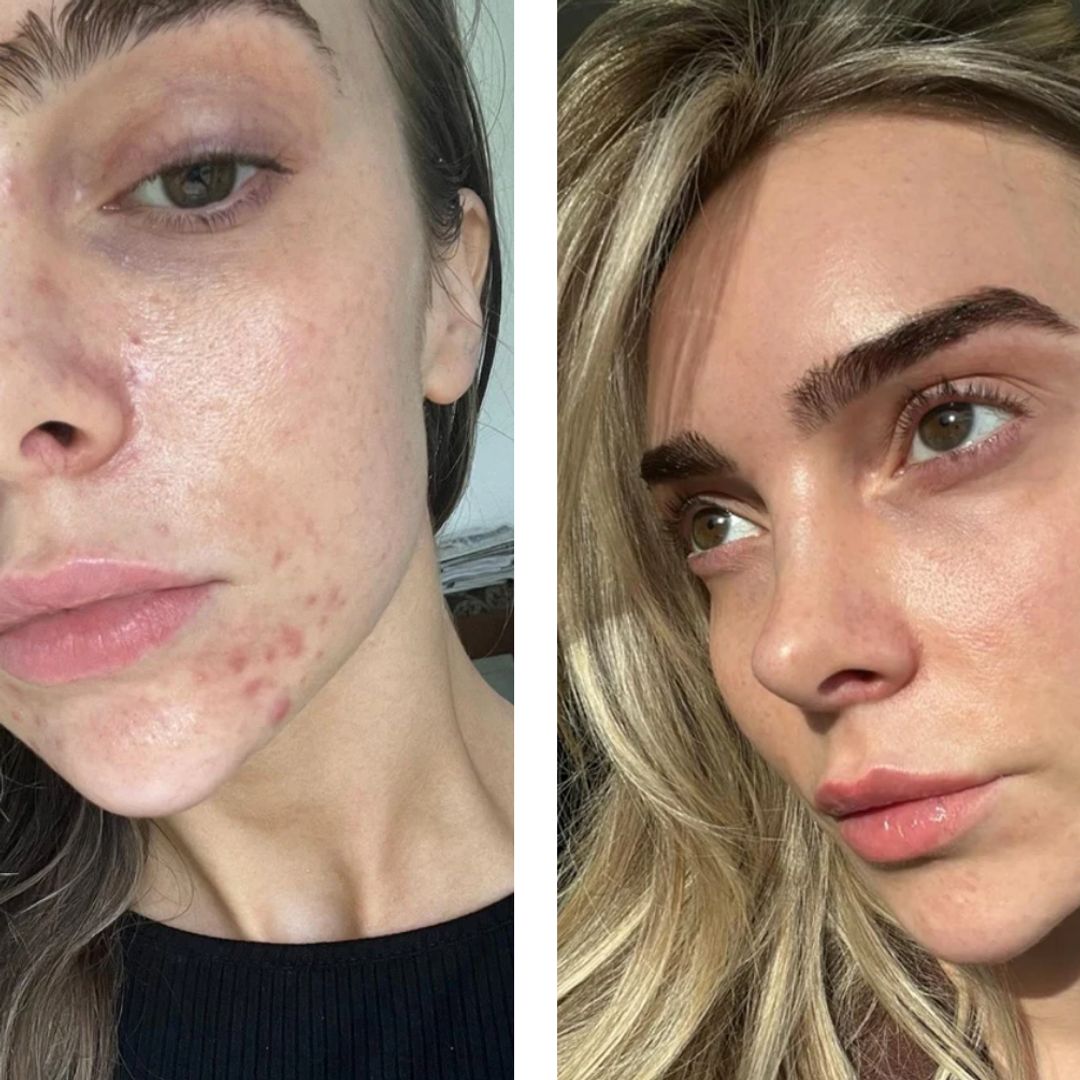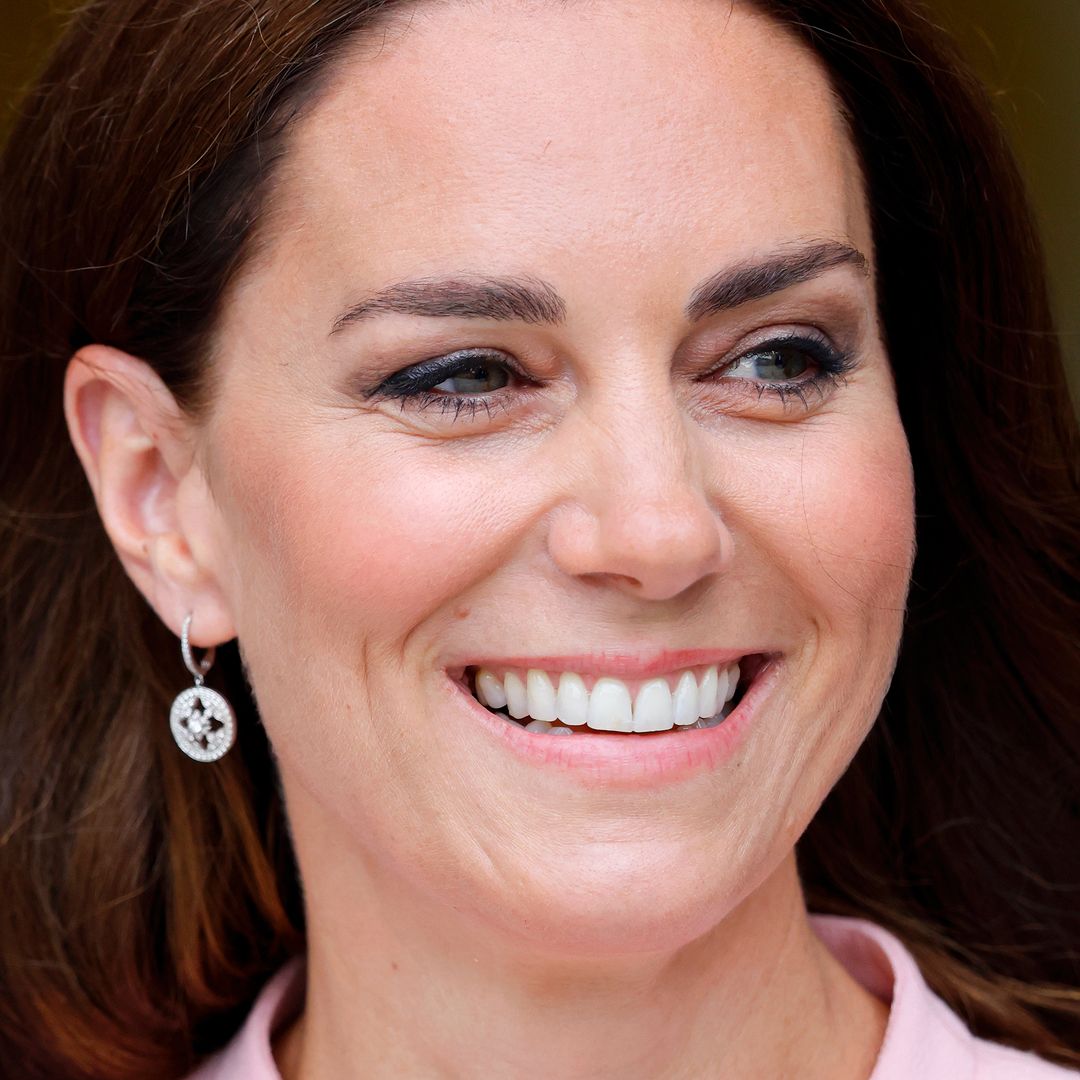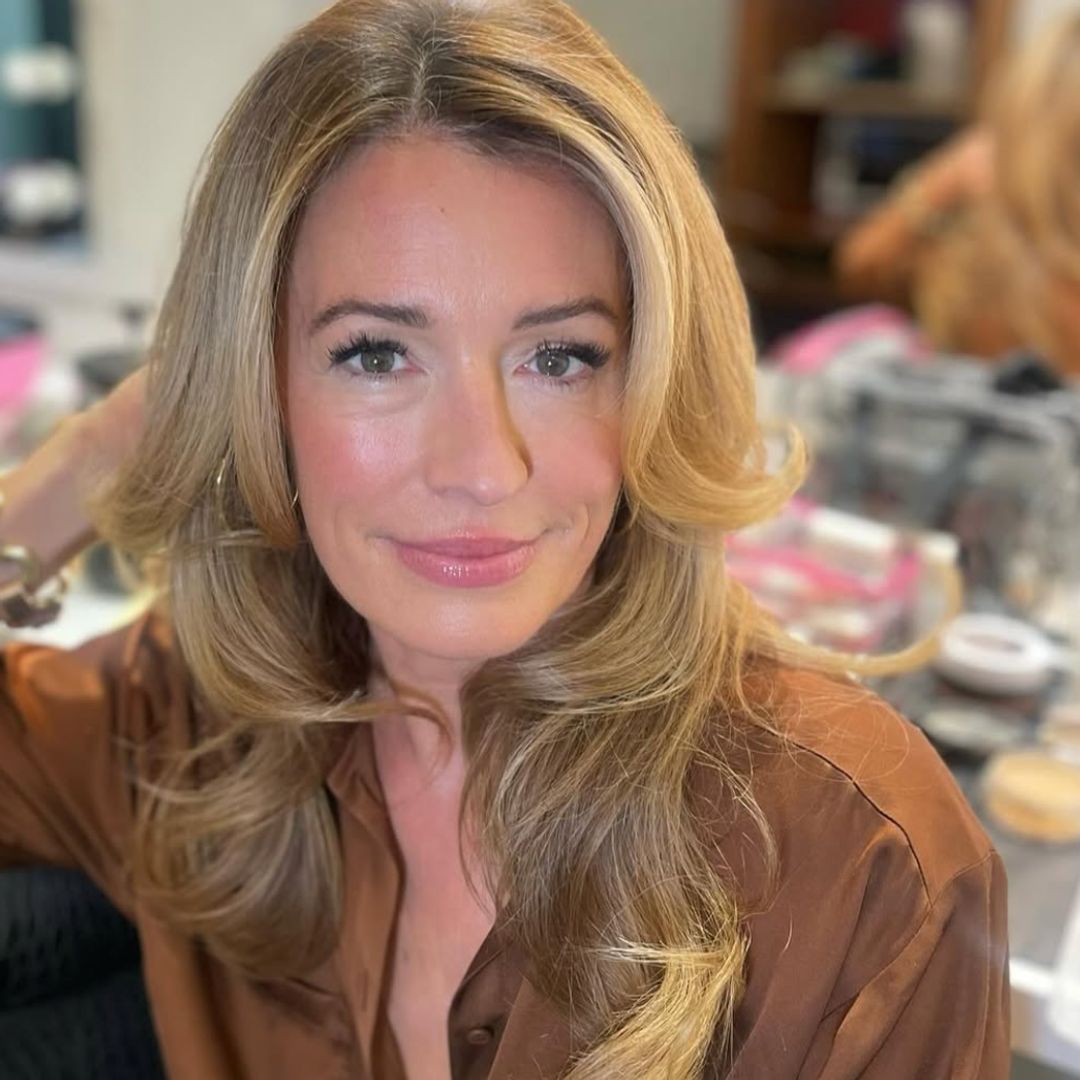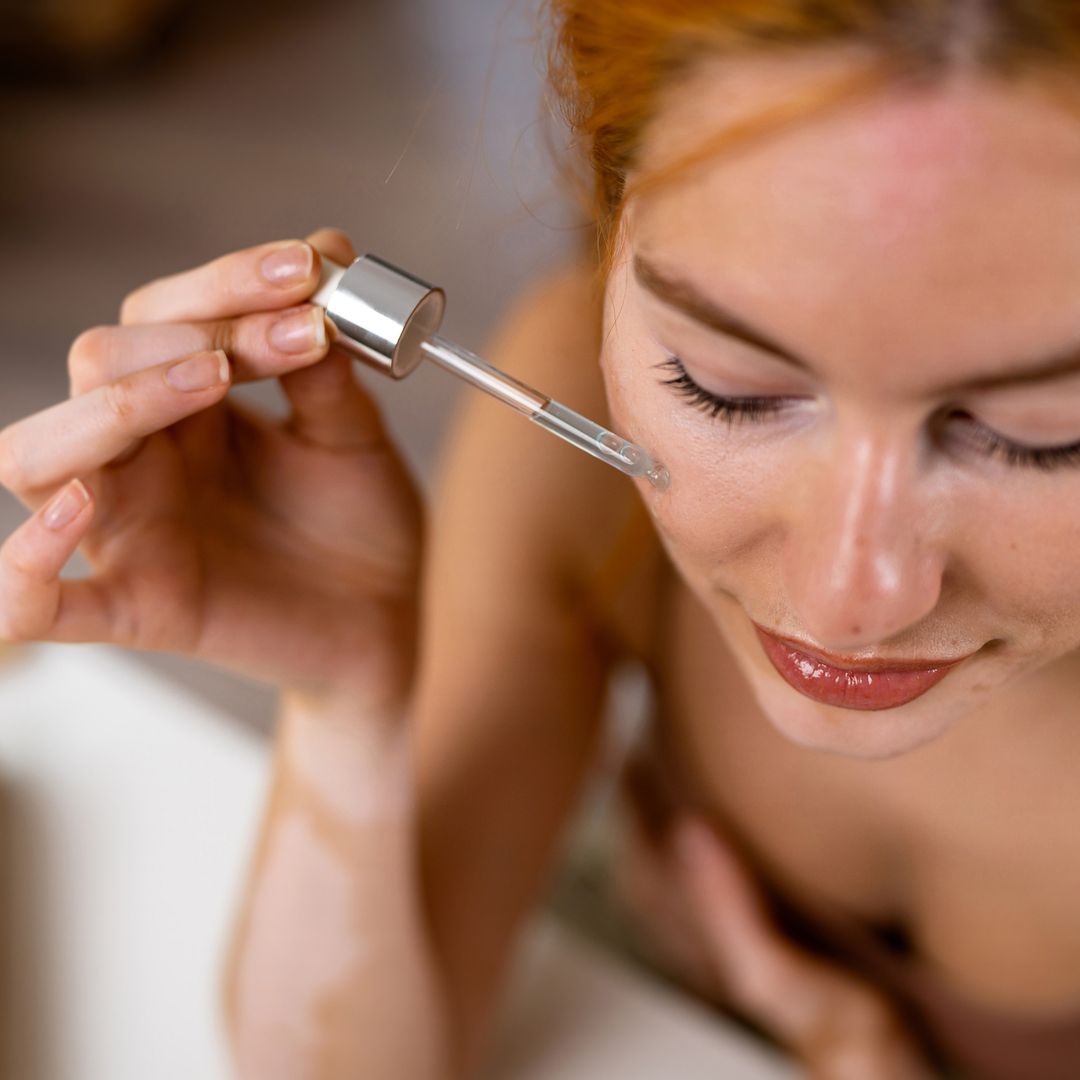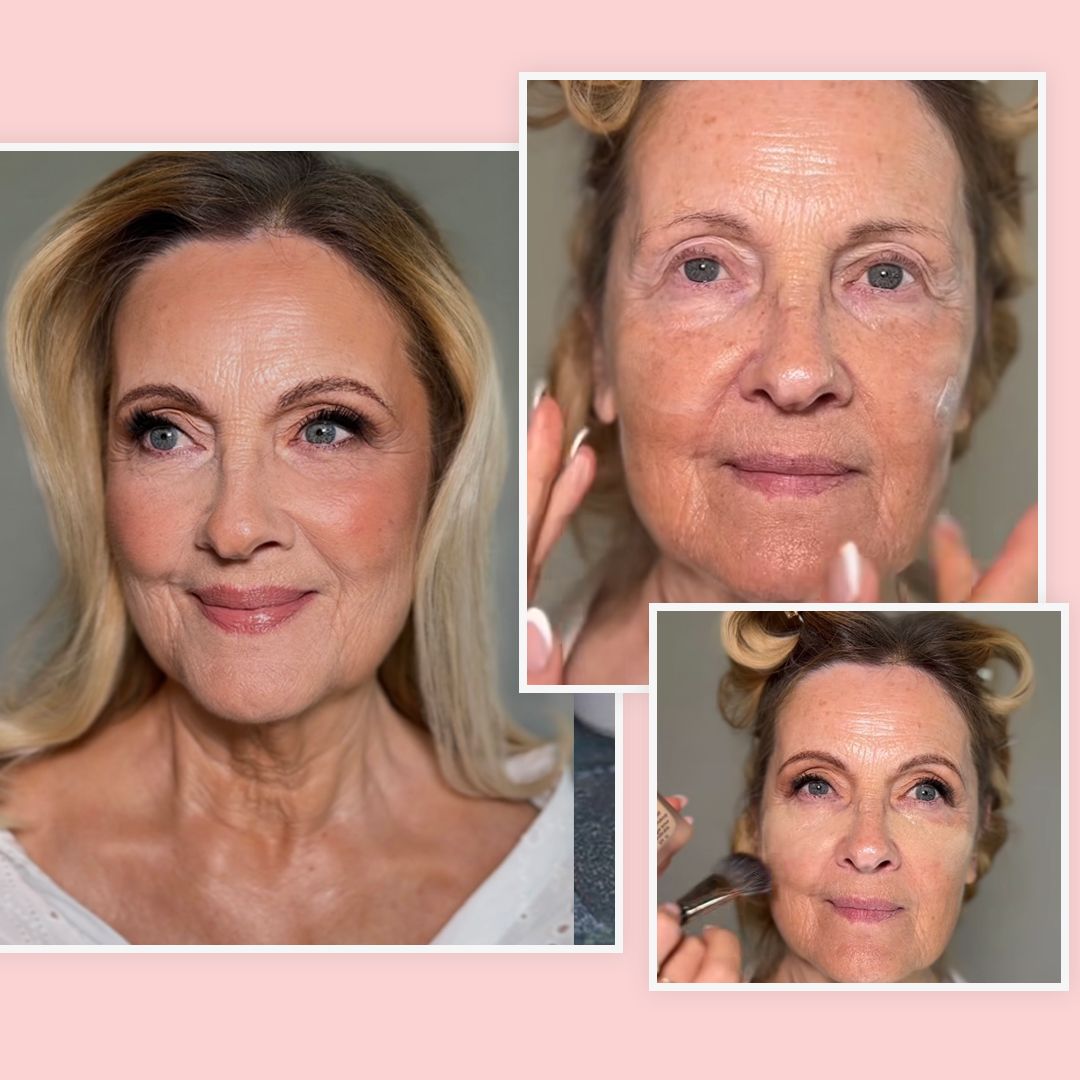Some women are immediately identifiable as pregnant due to the fabled "glow" they get as soon as they conceive. But not all ladies are lucky enough to get the glow. In fact, pregnancy acne can be a massive cause of concern for some.
So what causes acne during pregnancy?
"Pregnancy acne is the same clinically as acne in non pregnant individuals. It may appear as comedones (clogged pores) as well as red papules, pustules and/or cysts, depending on the severity," Dr Alexis Granite, Consultant Dermatologist at the Cadogan Clinic, told us. "Acne in pregnancy is most common in the first and second trimesters, and is at least partly due to elevated circulating hormones called androgens. These hormones may cause an increase in sebum production, making the skin more susceptible to congestion, inflammation and bacteria."
MORE: Emily Skye shares her pregnancy fitness tips
What can be done about it?
Unfortunately, those with a history of acne, especially hormonal acne, are at higher risk of developing acne while pregnant, Dr. Granite added. So what can be done about reducing the appearance of spots and acne during pregnancy? While strong anti-blemish face washes and products are a definite no-no, there are a few all-natural ranges which are entirely safe to use throughout pregnancy.
Products to use for pregnancy acne
Salcura
Salcura's Antiac range, which deeply cleanses, soothes irritation, and prevents infection, is so popular that the makers even offer a 30-day money back guarantee because they're so confident in its results. Antiac's star ingredient in the range is Sea Buckthorn, a champion of skincare, containing 25 times more vitamin C than an orange. Sea Buckthorn is also rich in omegas and skin essential vitamins, targeting infection to leave your skin refreshed and revitalised. The Salcura Antiac range includes a Daily Face Wash, Daily Face Wipes, Activ Liquid Spray and Activ Gel Serum, which will all help to keep spots at bay while also keeping baby safe.
RELATED: Top tips for a healthy pregnancy
Sudacrem
For stubborn spots, many women like to use a targeted treatment or cream on the breakout in a bid to make it disappear. And Sudocrem's Skin Care Cream is the perfect choice for this for pregnant women. It has the same ingredients as the brand's world-famous Antiseptic Healing Cream but in different proportions, and has the backing from celebrities including Cheryl Cole, who welcomed her son Bear in March 2017.
Bakel
Dr Barbara Kubicka, a London based physician, recommends the skincare line Bakel as it has zero preservatives, colourants synthetic fragrances, petroleum derivatives, silicones, alcohol, PEG, PPG or heavy metals. She says it's particularly good for "reducing sebum and for its anti-inflammatory properties".
Universkin
Another of Dr Kubicka's recommendations is the bespoke skincare line, Universkin. It's mixed onsite to patient specification, safe during pregnancy and also reduces sebum and contains anti-inflammatory properties.
READ NEXT: 100 beautiful vintage names that were popular 100 years ago
Treatments for pregnancy acne
Light Therapy
If you're thinking of going down the technological route, give light therapy product Lumie Clear a try - the blue light kills the acne bacteria and the red light reduces inflammation. This innovative product has been proven to help with mild to moderate acne and can be used on any part of the body – so if you're suffering from acne on your chest or back, which is also common during pregnancy, then this could be the answer for you. In trials, participants benefited from a 76 per cent improvement in the appearance of their skin within 12 weeks, using Lumie Clear every day for just 15 minutes – what have you got to lose?
Facials
When it comes to selecting in-salon treatments, it's imperative to speak to the therapist and make sure the procedure is safe for pregnancy before undertaking it. Dr Barbara Kubicka recommends finding out about LED light facials, cleansing facials and gentle peels.
Diet
This is all about self-treatment. Make sure to avoid acne triggers in your diet like refined sugar and processed carbohydrates like white carbs. It's important to eat dairy (if you're able to) but don't go too OTT on it.
This article contains affiliate links, which means HELLO! may earn a small commission if a reader clicks through and makes a purchase. More information.


